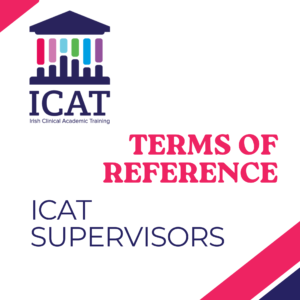Supervisor Database Search
Guidance for ICAT Supervisors
Supervisor Database
Full NameProfessor Cormac Taylor
- infectious disease and the immune system
- physiology and non-communicable disease
- Medicine
- Surgery
- Anaesthetics
- Emergency Medicine
- Paediatrics
- Pathology
- Cardiology
- Dermatology
- Endocrinology
- Gastroenterology
- Geriatric Medicine
- Haematology
- Infectious diseases
- Immunology
- Nephrology
- Pharmacology
- Physiology
- Respiratory Medicine
- Rheumatology
- Vascular Medicine
Professor Cormac Taylor Ph.D. currently holds an appointment as Professor of Cellular Physiology at the School of Medicine and Medical Science and the Conway Institute, University College Dublin. In 2001, Professor Taylor returned to Ireland after a 5-year postdoctoral fellowship at Harvard University, a move supported by a Wellcome Trust Career Development Fellowship. Since then, his lab has been funded by Science Foundation Ireland with additional support from the Health Research Board of Ireland, the European Union and the Irish Research Council. Professor Taylor was recently lead-organizer of a 2015 Keystone symposium held in Dublin entitled “Hypoxia: from basic mechanisms to therapeutics”. Professor Taylor was elected as a member of the Royal Irish Academy (Ireland’s highest academic honor). He was also recently awarded the 2014 Nature mid-career mentorship award and the Takeda Distinguished Researcher Award from the American Physiological Society, GI and Liver section.
Current research is directed towards expanding our understanding of the mechanisms by which hypoxia regulates transcriptional events in epithelial cells. Specifically, we are interested in the regulation of global gene expression in response to hypoxia and the modification of transcriptional regulators which underlies the induction of such events. We are also focussed on translating our understanding of hypoxia-sensitive pathways to developing new therapeutics in chronic inflammatory disease with a focus on inflammatory bowel disease (IBD).

